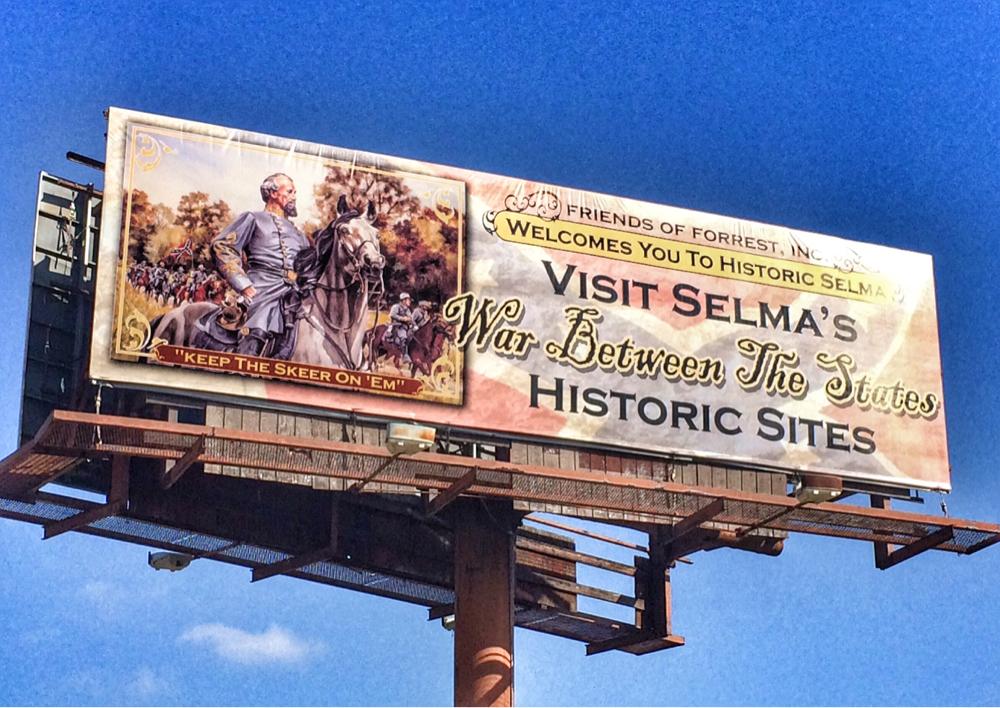A billboard to honor founder of Ku Klux Klan greeted marchers at Selma “Bloody Sunday” event

Selma, Ala. now has a black mayor. Those who travelled there this month in remembrance of “Bloody Sunday” were assured a friendly reception. That was not the case 50 years ago when civil rights campaigners dared to walk across the Edmund Pettus Bridge and confront stormtroopers. Even now, a billboard to honor the founder of the Ku Klux Klan was visible from the bridge to remind those at the recent event that bigotry is still alive and well in Alabama.
Unfortunately, most people who saw the billboard had no idea who Nathan Bedford Forrest was, riding gallantly astride his horse. Forrest was a Civil War general who led the Confederate troops defending Selma. He cruelly ordered the massacre of hundreds of black prisoners of war as well as white Southerners who had fought with the Union Army.
Forrest endeared himself to segregationists after the war when he became the first Grand Wizard of the Ku Klux Klan. A major political battle raged in Selma in the fall of 2012 when a group calling itself Friends of Forrest began efforts to build a memorial to him in a public cemetery. That same year, a bust of the general at the city’s Live Oak Cemetery mysteriously disappeared.
As the defender of Selma, Forrest was a failure. He was defeated by Brigadier General James Harrison Wilson, who was able to demolish Selma’s arsenal and put to flight the defending Confederate troops. Nonetheless, the Selma city council, on Jan. 15, 2014, voted in favor of erecting a statue to Forrest on public land. This was approved, even though 66.4 percent of Selma’s population is black.
The Friends of Forrest, depicted on the billboard, was undoubtedly more impressed with Forrest’s battles for bigotry than his wartime achievements. Hank Sanders, a black state senator and Harvard Law School graduate, opposed “a monument on public property in honor of one who killed black women and children, killed black Union soldiers who had surrendered and the white officers who led them, and after the war built the Ku Klux Klan into a force that attacked terrorized and murdered black people for a hundred years.”
Would Jews ever support the construction of a statue to honor a Nazi, just for the sake of history?






